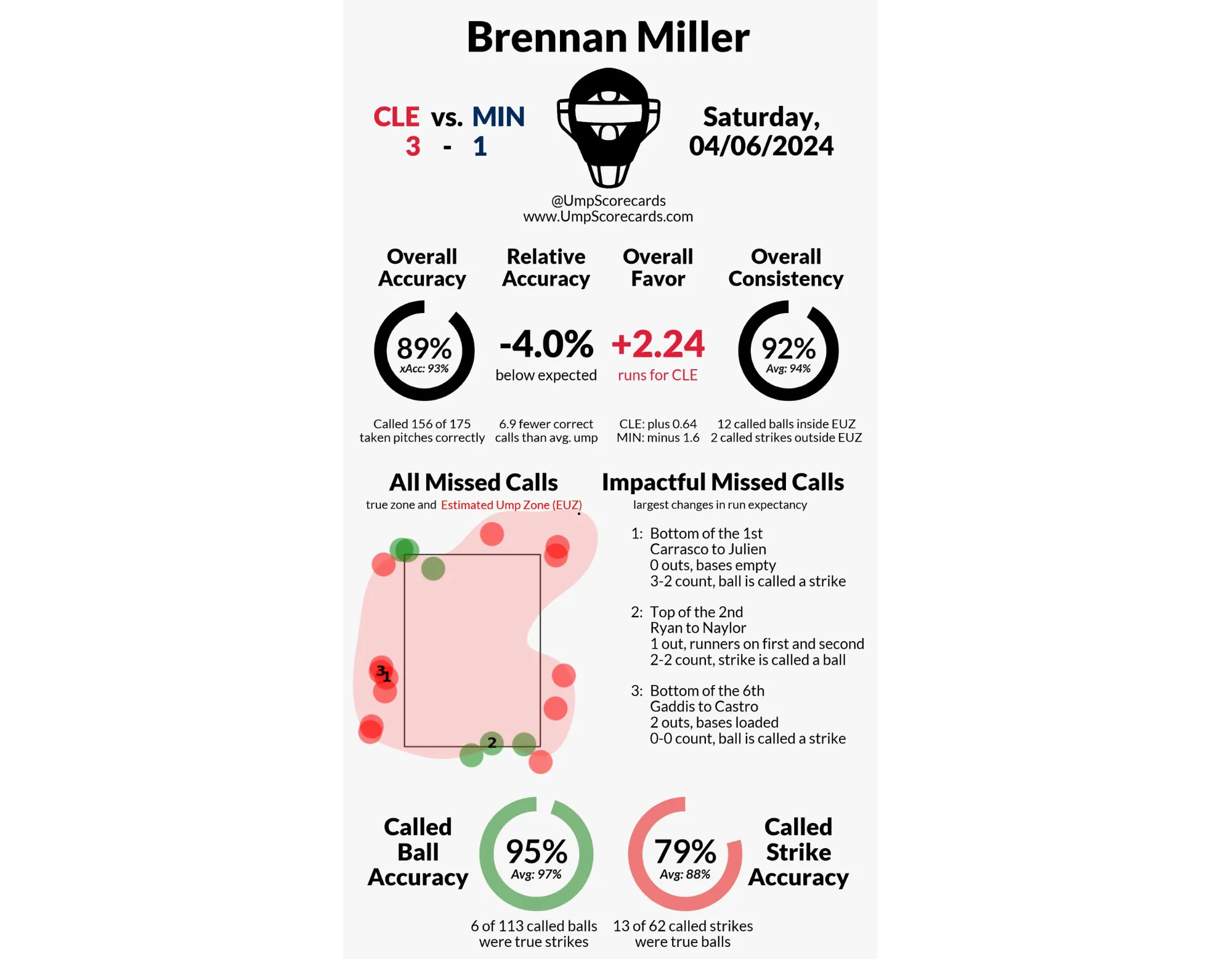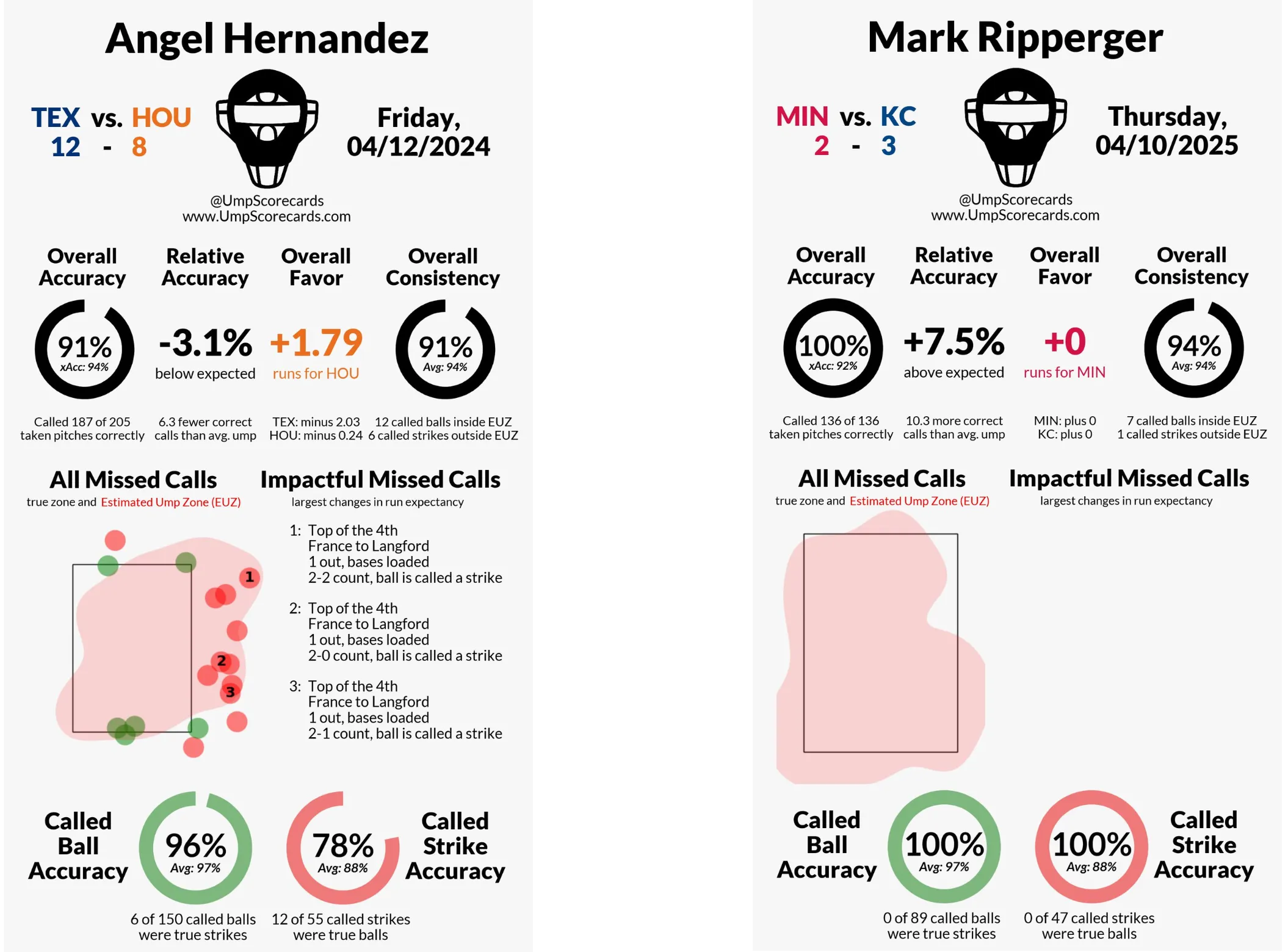Imagine you’re at a baseball game, and your favorite team has been battling back and forth with their biggest rivals. The lead has changed twice in the last couple of innings, and it’s now tied in the bottom of the ninth with your team’s best hitter up to bat with the bases loaded. There are two outs. He has tallied two strikes, so the next one means the game is over. You’re hoping for a hit, but there are also three balls, so he could walk with a fourth, earn a free pass to first, and score the runner on third on the next pitch. Either way, you and the home crowd would go home happy. He readies his bat and leans in towards the plate. The pitcher pulls the baseball from his glove, starts his windup, and throws a pitch. It’s far outside the strike zone, and the batter doesn’t swing. The umpire grunts. The crowd roars with emotion. But those roars aren’t cheers. Those roars are boos. The batter has struck out. The umpire, whom you haven’t given a thought to all night, has made a critical mistake. The game is over. Wait, what?
Unfortunately, this isn’t just a hypothetical scenario. In Major League Baseball (MLB), umpires rule every ball and strike call. They often make mistakes that give one team an advantage over the other. There is no recourse if a player or manager disagrees with a called pitch, no matter how egregious the error. Implementing the Automated Ball-Strike (ABS) Challenge system can fix that.
The ABS system uses cameras, radar, and algorithms to determine if a pitch is a ball or strike. The challenge system lets umpires call every pitch while allowing teams to dispute calls. Each team gets two challenges, with successful challenges being retained.
The need for this system becomes clear upon examining the data. Umpire Scorecards tracks every umpire’s performance throughout each season. In 2024, the 90 MLB umpires who worked behind home plate had accuracy rates ranging from 92% to 95% on ball and strike calls.
This sounds impressive until you consider how many pitches are thrown in a single baseball game. With 290 pitches per game in 2024, even the best umpire misses 15 calls, while the average umpire misses 493 calls a season. Joe West, who umpired a MLB record 43 seasons, averaged 90% accuracy from 2015-2021, or one in ten calls wrong during his last six seasons behind home plate.
These wrong calls have large impacts. On April 6th, 2024, Brennan Miller called a game between the Minnesota Twins and Cleveland Guardians and his decisions resulted in over two runs of favor for the Guardians. Notably, he turned a would-be walk for the Twins into a strikeout. The Guardians won by two runs. Nobody knows if the Twins would have won if those calls had gone differently, but future games wouldn’t suffer from so many missed calls with the challenge system.

Typically, catchers “frame” pitches to influence the umpire’s perception of a pitch. “Framing” describes the way that catchers set up and receive a pitch in their mitt in a way to turn a would-be ball into a strike. Occasionally, catchers do “steal” strikes, and that’s become a hallmark of some catchers. Detractors of an ABS system say that those catchers would suffer from its implementation, with pitch framing as a specialized skill set that would lose utility in the game.
However, adding the challenge system would reward catchers’ efforts. Eagle-eyed catchers would be able to instantly overturn a called ball they know is in the strike zone, allowing them to correct errors they normally couldn’t dispute no matter how solidly the pitch is a strike and how expertly it was received. In MLB’s spring training pilot of the ABS system in 2025, catchers proved to be the most valuable challengers, winning 56% of challenges.
Calling pitches accurately demands extraordinary skill. Tracking spinning projectiles moving over 100mph is a major test of the human eye. Angel Hernandez, a recently retired umpire of 34 years, gained infamy for messing up calls at critical moments. On April 12th, 2024, all three called strikes in one bases-loaded at-bat were balls far off the plate. CC Sabathia, a pitcher in the Baseball Hall of Fame, said that Hernandez is “absolutely terrible” after facing his inconsistent strike zone.

Umpires are human and they often change their strike-calling behavior after receiving criticism, sometimes ejecting players or managers who disagree with their calls, unnecessarily disrupting games. The ABS challenge system disincentivizes that behavior and protects umpires from unwarranted criticism. Although Hernandez is notorious, there are umpires who make worse calls each season. With increased scrutiny on umpiring, the ABS system would also highlight excellence, celebrating performances like Mark Ripperger’s on April 10th, 2025.
Perhaps even more important than the players’ and umpires’ perspectives is fan sentiment. MLB has recently implemented several rule changes specifically to enhance fan engagement: the pitch clock sped up games that were moving too slowly, and base sizes increased to encourage more stealing. Fan dissatisfaction with incorrect calls has persisted for years, amplified by today’s technology. MLB broadcasts display digital strike zone overlays during every at-bat, instantly revealing when umpires miss calls and inspiring subsequent outrage. Extensive testing of the ABS challenge system in minor leagues and spring training has received widespread positive feedback from players and spectators alike. MLB should recognize this support and implement the challenge system to improve the game.
So maybe the next time the umpire misses a call in a high-pressure situation late in the game, the batter will request a challenge, the correct call will be made, and the game will continue as it should—determined by the skills of the players rather than the limitations of human vision. The ABS challenge system won’t just preserve the integrity of baseball; it will preserve those magical moments that make us love the game.
Anzhuo Wang is a dedicated baseball fan who hopes everyone can enjoy the glorious game. Last summer, she interned at Sports Reference, writing code for Baseball-Reference.com.